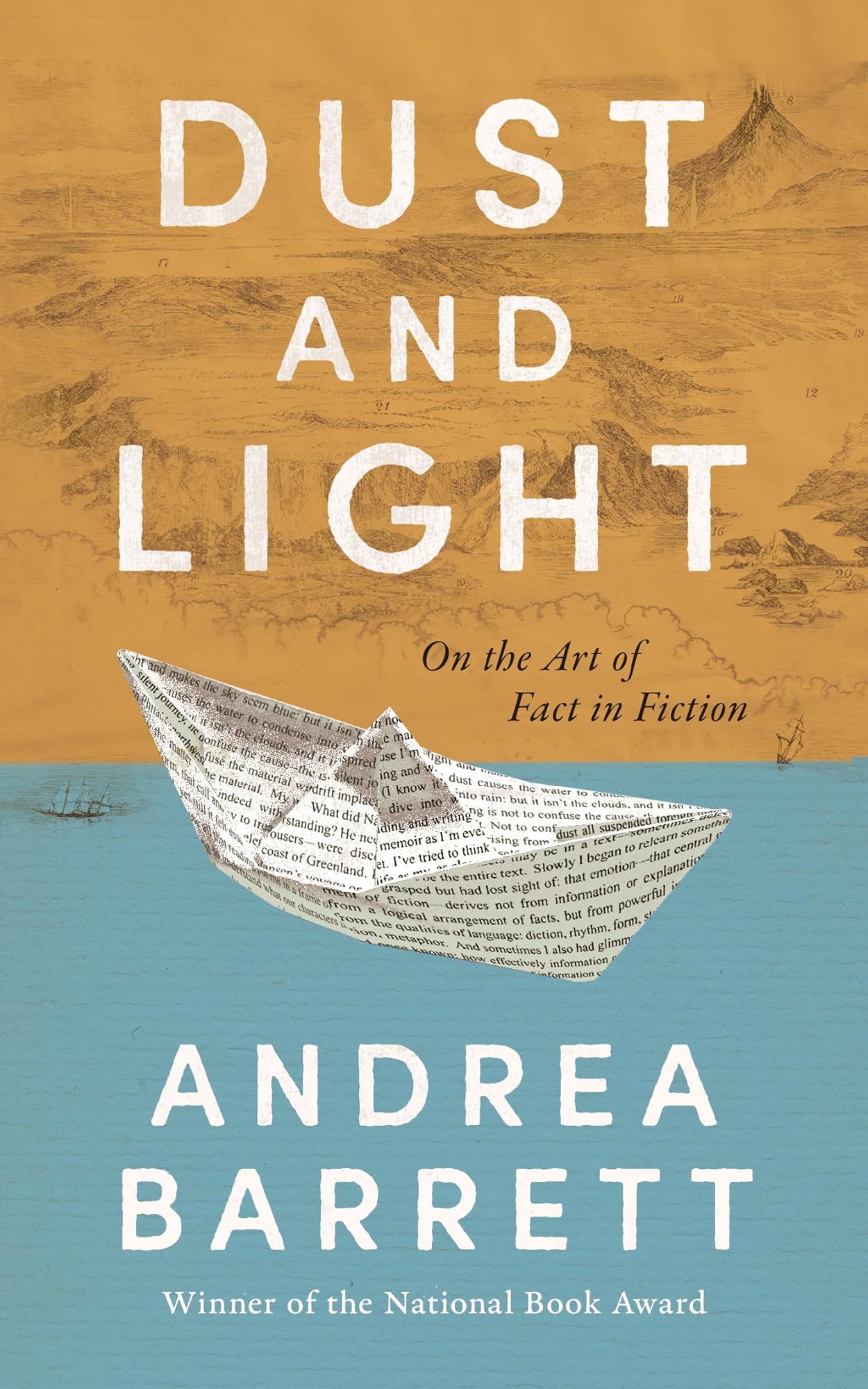
Dust and Light

A fictional narrative adds to those tools the attitudes of its characters toward themselves and each other—conveyed by speech, but also in thought, since we can enter the minds of our characters (even our “real” characters). The rapture of firsthand encounters with another’s lived experience—that, with all that implies, makes possible the crucial
... See moreAndrea Barrett • Dust and Light
In 1936, when a different war was looming on the horizon, Walter Benjamin wrote this: Every morning brings us the news of the globe, and yet we are poor in noteworthy stories. This is because no event any longer comes to us without already being shot through with explanation. In other words, by now almost nothing that happens benefits storytelling;
... See moreAndrea Barrett • Dust and Light
And beyond those relatively simple facts, you have a sense of my sensibility. My emotional makeup, my responses to the world, my obdurate willingness to revise and revise again. What I notice, what I pay attention to. That—not only that, but essentially that; in addition to fact, sometimes instead of fact—is at the heart of fiction.
Andrea Barrett • Dust and Light
What we teach each other by talking about process isn’t necessarily a transmission of the process itself; it’s a sense that we all have our own strange ways, and that we should cherish those ways.
Andrea Barrett • Dust and Light
dated July 6, 1860; had he written it then? “There is a strange commingling of life-forms in the Straits of Belle Isle,” the text continued.
Andrea Barrett • Dust and Light
I let the material lead me, following the hints of glitter among the heap of rubble and, by sifting and sorting until I’d found more, linking one bit to another and another.
Andrea Barrett • Dust and Light
Slowly I began to relearn something I’d once grasped but had lost sight of: that emotion—that central element of fiction—derives not from information or explanation, nor from a logical arrangement of facts, but from powerful images and from the qualities of language: diction, rhythm, form, structure, association, metaphor.
Andrea Barrett • Dust and Light
Even once I started writing, I kept failing. I wrote bad prose poems, laughable villanelles, ridiculous sestinas. I wrote part of a play featuring Franciscan monks arguing about a schism in their order, and something like a story about the Inquisition. I wrote multiple drafts of two terrible novels, later discarded. Again and again, as I’ve touched
... See moreAndrea Barrett • Dust and Light
If novelists think, perhaps this is how we think: through a frenzy of metaphor-making and analogy-building, an accretion of meaningful images juxtaposed in ways that seem to us fruitful, although to someone else they might seem baffling.